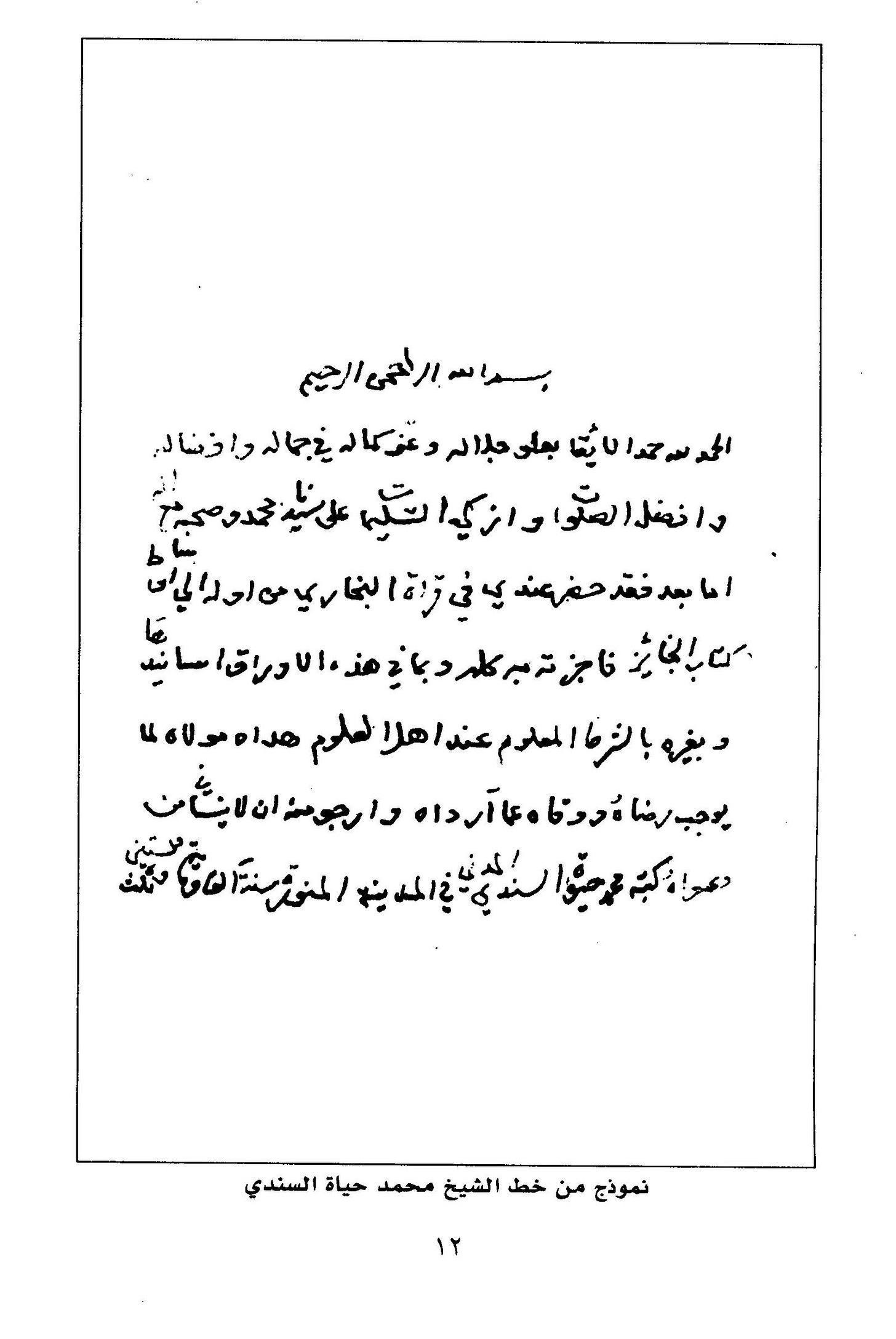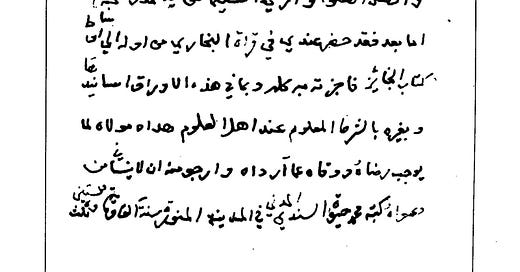Sharh al-Hikam of Shaykh Muhammad Hayat al-Sindi

Salam
I was delighted to come across the commentary on the Hikam of Imam Ibn Ataillah by none other than Shaykh Muhammad Hayat al-Sindi, a scholar respected in Salafi circles, and whose works have received editions from Salafi publishers. The image above is of the handwriting of the Shaykh himself (Allah have mercy on him). I thought this extract (p.28-29) below may be of benefit Note: Text of the Hikam is in bold.
“Your seeking from Him with your your thinking that if you do not seek from Him He will not give Is an accusation against Him In that which He has guaranteed and promised. And this (accusation) is a great sin. Seek from Him manifesting your poverty and need of Him along with your conviction that which is promised for the slave will no doubt reach him. Supplication (dua) is the essence of worship due to its consisting of manifesting need and poverty which are necessary for complete humility in slavehood.
And your seeking Him due to your absence from Him Despite his being closer to you than the jugular vein, He is with you where ever you are. Open the eye of your inner sight and you will see him with you. When was he absent from you such that he needed to sought? When did He leave you such that He had to be searched for? You are a veil for yourself, so remove it and you will find Him with you.
And your seeking other than Him Who is not pleased with being asked is Due to the your lack of modesty with Him As He is turned towards you, present with you and watchful over you. Thus your seeking other than Him indicates to a lack of modesty with Him, for if you had modesty with Him you would turn with full attention towards Him, and ignored all other than Him focusing on Him. If attention given to dust with presence of the Lord of the Worlds?…
And your seeking from other than Him Without His permission for this is due to your distance from Him For if you were to witness His closeness to you and His cognisanze of your state and His power to fulfill your hopes why would you seek from other than Him. Rather you would place your trust in Him, and resign your matter totally to Him. But due to your distance from Him you seek it from other than Him, despite his not being able to help with your need except with His will. So reflect on the ugliness of your state and the bad action, and request from your Lord in all of your states.”



